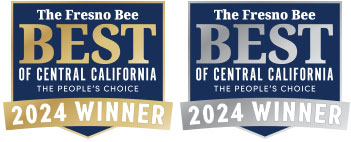- SOC-001
- Introduction to Sociology
- Credit(s) 3
Introduction to Sociology
SOC 001 is an introduction to the sociological concepts and theoretical perspectives
of sociology and their application to the fundamental problems of social life. The
course includes an overview of sociological explanations, methods, and findings in
social structure, group dynamics, socialization, social stratification culture, social
change, and global dynamics.(C-ID SOCI 110) (AA/AS, CSU, UC)
- Class Hours:
- 54 Lecture
- Advisory(s):
- ENG 051A
- Transfers to:
- Transfers to both UC/CSU
- C-ID:
- SOCI 110
- SOC-002
- Critical Thinking/Social Prob
- Credit(s) 3
Critical Thinking and Social Problems
SOC 002 explores major social problems experienced by society, with an exploration
of the role of power in defining social problems, causes and onsequences, theoretical
perspectives, proposed solutions, and methods of interventions. The course focuses
on the application of critical thinking skills to strengthen critical analysis and
heighten social awareness.(C-ID SOCI 115) (AA/AS, CSU, UC)
- Class Hours:
- 54 Lecture
- Prerequisite(s):
- ENG 051A
- Transfers to:
- Transfers to both UC/CSU
- C-ID:
- SOCI 115
- SOC-003
- Marriage and Family Relations
- Credit(s) 3
Marriage and Family Relations
SOC 003 explores diversity in family dynamics including historical and recent
changes. Topics focus on socio-cultural and economic forces shaping the family, love,
mate selection, sexuality, communication patterns, parenthood, and dissolution. Students
will learn how paired relationships work in contemporary mass society, why they succeed,
and why they sometimes fail. (C-ID SOCI 130) (AA/AS, CSU, UC)
- Class Hours:
- 54 Lecture
- Advisory(s):
- ENG 051A
- Transfers to:
- Transfers to both UC/CSU
- C-ID:
- SOCI 130
- SOC-005
- Cultural Sociology
- Credit(s) 3
Cultural Sociology
SOC 005 surveys multiple dimensions of culture and social stratification in the
United States, including race, ethnicity, age, class, physical ability, religion,
gender, and sexuality. This course promotes cultural awareness aimed at building cultural
intelligence. Attitudes and competencies emphasize theoretical perspectives, cultural
change, and future trends in diversity. (C-ID SOCI 150) (AA/AS, CSU, UC)
- Class Hours:
- 54 Lecture
- Advisory(s):
- ENG 051A
- Transfers to:
- Transfers to both UC/CSU
- C-ID:
- SOCI 150
- SOC-006
- Drugs and Society
- Credit(s) 3
Drugs and Society
SOC 006 explores drugs in modern society. The course will address drugs as a social
problem including drug effects, trends, regulations, prevention, and treatment. Drug
issues and concerns related to use, abuse, dependence, crime, violence, and public
policy will be explored. (AA/AS, CSU, UC)
- Class Hours:
- 54 Lecture
- Advisory(s):
- Successful completion of ENG 051A (Introduction to Communication Skills) or the equivalent.
- Transfers to:
- Transfers to both UC/CSU
- SOC-007
- Sociology of Mental Health
- Credit(s) 3
Sociology of Mental Health
SOC 007 examines the perception and response to mental illness, the way mental
health services have evolved, and the way different populations are included and excluded
from service delivery. The course will address a range of topics on mental health,
mental disorders, and the delivery of mental health services in American society.
(AA/AS, CSU)
- Class Hours:
- 54 Lecture
- Advisory(s):
- ENG 051A
- Transfers to:
- Transfers to CSU
- SOC-010
- Sociological Practice
- Credit(s) 3
Sociological Practice
SOC 010 examines sociological practice and its tools in understanding intervention
in, and/or enhancement of human social life. Students will learn about applied and
clinical sociology as multidisciplinary, humanistic fields that assess and reduce
problems through analysis and intervention. Students will be exposed to critical assessments
of beliefs, policies, and practices with an eye toward improving the situations through
civic engagment and change. (AA/AS, CSU)
- Class Hours:
- 54 Lecture
- Advisory(s):
- ENG 051A
- Transfers to:
- Transfers to CSU only
